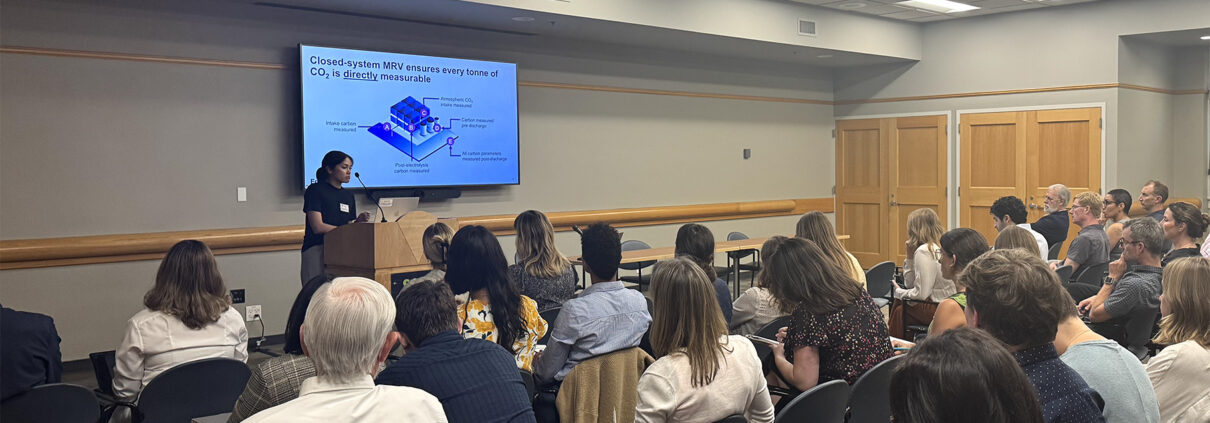Starting a new position often means learning the basics. For me, it meant setting aside introductions at a desk and instead joining experts at the California Forum on Abiotic Marine Carbon Dioxide Removal (mCDR) to take part in discussions on one of today’s most complex scientific and policy topics. The forum gathered scientists, policymakers, and industry leaders to exchange ideas, transfer knowledge, and explore how the ocean may help address climate change.
Hosted in Sacramento, the forum focused on abiotic (non-biological) pathways for capturing and storing atmospheric carbon dioxide, such as ocean alkalinity enhancement and direct ocean capture methods. Across plenaries, panels, and networking breaks, participants examined the state of mCDR science, technical hurdles, and the policy frameworks needed to move from promising concepts to responsible deployment.
The opening plenary immediately set the tone. My new colleagues at OST began the forum by emphasizing and demonstrating the value of convening diverse perspectives in this emerging field. Attendees were invited to raise their hands according to sector, underscoring the breadth of expertise in the room. Speakers then outlined the landscape of ocean-climate governance in California and described emerging mCDR technologies. The session balanced ambition with caution, highlighting both opportunities and uncertainties.
As the day continued, the complexity of this work became tangible. Sessions featured field trials and research gaps, reinforcing the need for rigorous testing and transparent accounting of impacts. Speakers underscored both the urgency driving research and the importance of scaling responsibly.
Conversations outside the sessions were equally valuable. Over lunch, I spoke with marine scientists, coastal managers, academics, and colleagues from research organizations. The dialogue emphasized how interdisciplinary this field must be. Scientific advances depend on policy frameworks, and policy decisions depend on credible science.
The afternoon sessions turned toward monitoring and regulation, addressing permitting, transparency, and community engagement. Discussions emphasized that technological innovation must be accompanied by governance and trust-building.
As I left the forum, I felt a sense of alignment. My first day on the job could not have been a sharper introduction to both the promise and complexity of mCDR. This is a field defined by urgency, collaboration, and long-term vision. The lesson from day one is unmistakable: advancing marine carbon removal will depend on science, governance, and collective commitment.
Stay tuned for a summary of the Forum.




